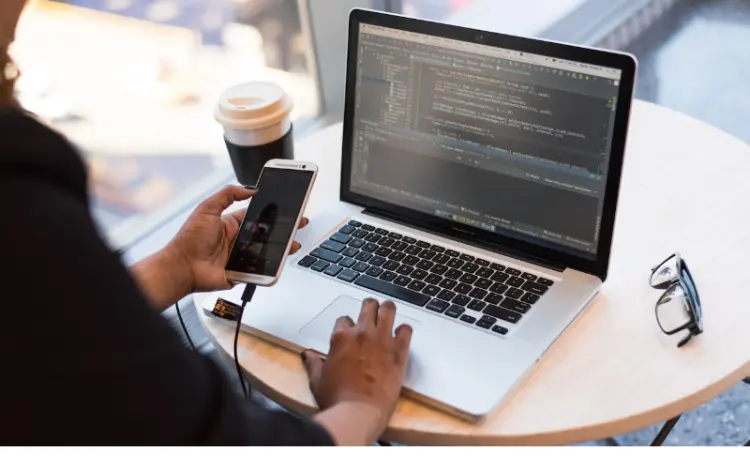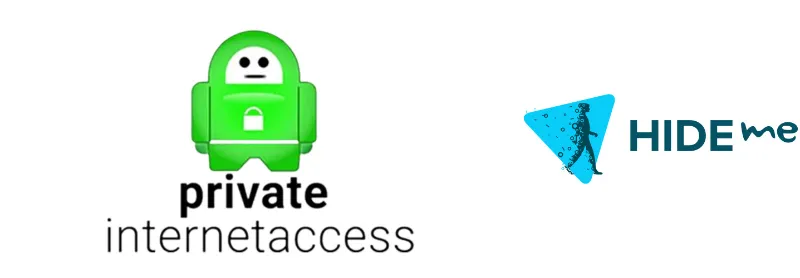Today, we’re diving into a question that’s been popping up a lot lately: “Does a VPN affect phone calls?”
Before you start scrolling wildly down the page, we’ve got the quick answer right up here. But do stick around for the full scoop, because it’s worth knowing the ins and outs of this topic.
Quick Answer: Does a VPN Affect Phone Calls?
In short, a VPN can influence phone calls, but its impact depends on several factors.
If you’re using Voice Over Internet Protocol (VoIP) services, like Skype or WhatsApp calls, a VPN can help bypass geo-restrictions and enhance security.
But remember, it could potentially impact call quality depending on the speed and stability of your VPN service.
What is a VPN and How Does it Work?
A Virtual Private Network, better known as a VPN, is a type of service that allows you to connect to the internet via an encrypted tunnel.
This layer of encryption serves two main purposes: enhancing data security by shielding your online activities from prying eyes, and allowing you to mask your IP address, effectively enabling you to appear as if you’re browsing from a different location.
So, how does a VPN work? In simple terms, when you connect to a VPN, it encrypts your data and sends it through a secure tunnel to a server operated by the VPN company.
From there, your data is decrypted and sent to its destination on the internet. This process is repeated in reverse for data returning to you.
This setup ensures that your internet activity is kept private and secure from hackers, trackers, and even your own Internet Service Provider (ISP).
You might wonder, “Should VPN be on or off on my phone?” It depends on your specific needs. If you’re looking for more security and privacy, or want to bypass geographical restrictions, keeping your VPN on is a good idea.
But if internet speed is a priority, and you’re not concerned about these features, you may want to turn it off.
How VPN Interacts with Phone Calls
The interaction between VPNs and phone calls can be complex because it largely depends on the type of phone calls you’re making.
VPNs and Regular Phone Calls
Traditional phone calls, or those that use your mobile network, aren’t typically affected by VPN usage.
This is because these calls are routed through your cellular provider’s voice network, separate from your data network, where the VPN operates.
VPNs and VoIP Calls
On the other hand, VoIP calls made through services like Skype or WhatsApp use your data network, meaning they are affected by your VPN. The good news?
A VPN can provide added security by encrypting your calls, making them more difficult to intercept. Plus, a VPN can bypass geo-restrictions, allowing you to access VoIP services anywhere.
However, the potential downside is that VPNs could cause call latency or lower quality, depending on the speed and stability of the VPN service.
Essentially, your call’s data takes longer via the VPN server, which can introduce some delay or call drops.
VPNs and International Calls
When it comes to international calls, a VPN can be quite handy. It can help bypass country-specific restrictions, allowing you to place calls without any issues.
Additionally, if the VoIP service you’re using charges less for local calls, you could potentially connect to a VPN server in the same country as your call recipient to reduce costs.
Impact of VPN on the Quality of Phone Calls
VPNs, while offering an extra layer of security and privacy, can indeed affect the quality of your phone calls, particularly if those calls are made over VoIP services. Here’s how:
Potential Benefits of Using a VPN for Phone Calls
- Security: VPNs encrypt your data, so your calls are more secure and less susceptible to interception. This can be especially important if you’re making business calls with sensitive information.
- Geographical freedom: VPNs can help bypass geo-restrictions on VoIP services, allowing you to make calls from any location, to any location. Got a cousin in a country where WhatsApp is blocked? No problem with a good VPN.
Possible Drawbacks of Using a VPN for Phone Calls
- Speed and quality: Since a VPN routes your data through an additional server, it can affect your connection’s speed. This might result in call drops or lower call quality due to increased latency.
- Battery drain: VPNs can consume more power, which might drain your phone’s battery faster. If you’re on a marathon call session, you might want to keep your charger handy!
Does a VPN Influence the Cost of My Phone Calls?
A common question is whether using a VPN can influence the cost of phone calls. The simple answer is: it depends.
Regular Phone Calls
If you’re making regular phone calls via your mobile network, using a VPN won’t affect the cost of these calls. These calls are billed according to your mobile provider’s plan and are separate from your data usage.
VoIP Calls
For VoIP calls, the story is a bit different. The cost of VoIP calls is usually determined by your internet provider or VoIP service, not by the VPN. But, here’s where it can get tricky.
If your VoIP service charges differently based on location, using a VPN to change your location could potentially impact the cost.
For instance, if you’re in the US and you use a VPN to appear as though you’re calling from the UK, the VoIP service might charge you at their UK rates, which could be higher or lower than their US rates.
Always double-check your VoIP service’s pricing rules!
Note that using a VPN itself can also have costs associated. Many high-quality VPNs require a subscription, usually in USD.
And while there are free VPNs available, they may have limitations on data, speed, and server availability, which could impact your call quality.
Frequently Asked Questions (FAQ)
Let’s take a quick look at some of the most frequently asked questions about VPNs and phone calls.
Q1. Does a VPN affect regular phone calls?
Regular phone calls that use your mobile network are typically unaffected by VPN usage as these calls are routed through your cellular provider’s voice network, separate from your data network where the VPN operates.
Q2. How does a VPN affect VoIP calls?
A VPN can enhance the security of VoIP calls by encrypting the data, making it more difficult to intercept. Plus, it can bypass geo-restrictions, enabling you to access VoIP services from anywhere.
However, it may potentially affect call quality, depending on the speed and stability of the VPN service.
Q3. Can a VPN reduce the cost of my calls?
Potentially, yes. If your VoIP service charges differently based on location, using a VPN to appear as if you’re calling from a different location might impact the cost.
For example, if you’re in the US and your VoIP service charges less for calls within the UK, using a VPN to appear as though you’re calling from the UK could reduce your call costs.
Q4. Does using a VPN drain my phone battery?
VPNs can consume more power, so they might drain your phone’s battery faster. If you’re planning a long call session, you might want to keep your charger handy!
Conclusion
In conclusion, while VPNs can offer enhanced security and privacy for your online activities, including VoIP calls, they may also introduce potential challenges such as reduced call quality and increased battery consumption.
Whether or not you should use a VPN while making phone calls depends on your specific needs and circumstances.









